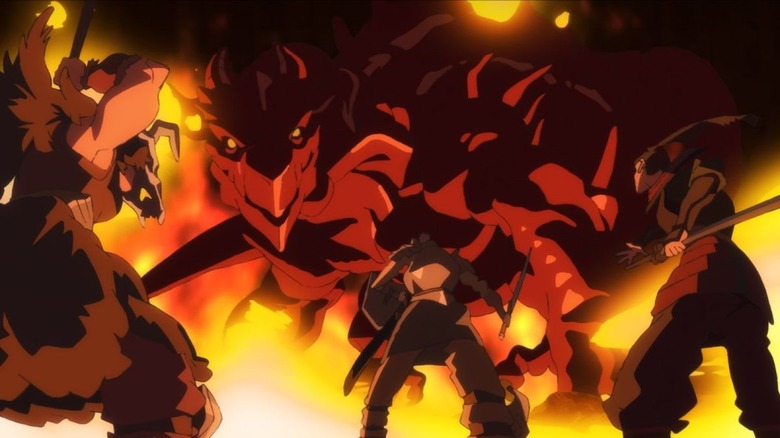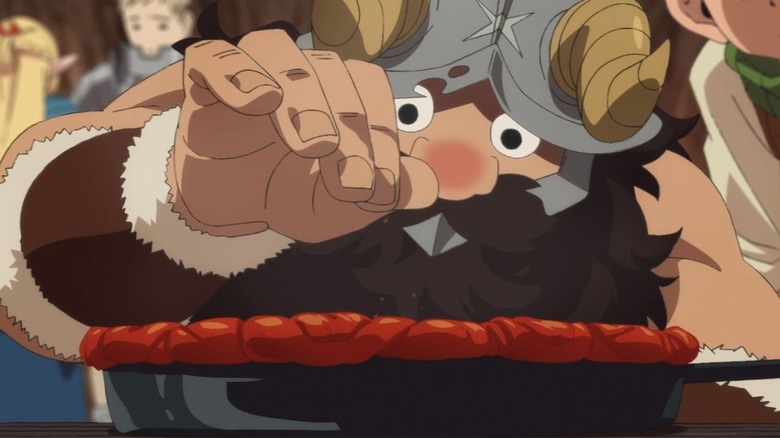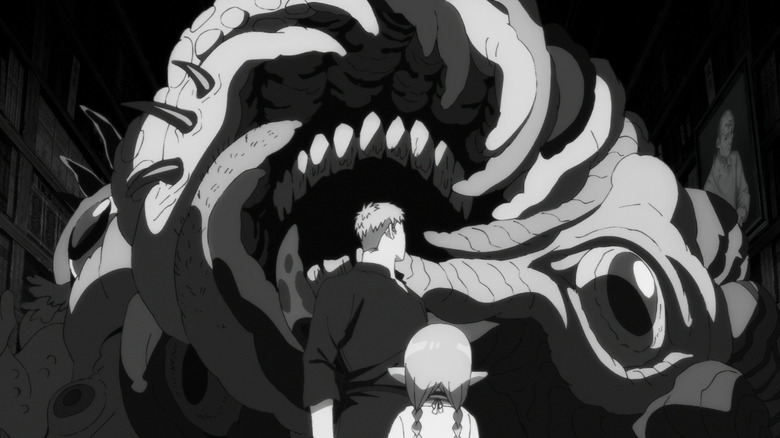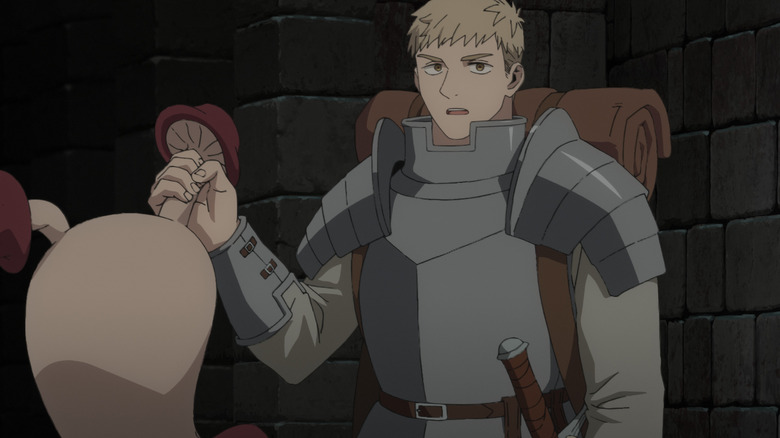This Epic Anime Series Has A Tonal Shift That'll Leave You Speechless
(Welcome to Ani-time Ani-where, a regular column dedicated to helping the uninitiated understand and appreciate the world of anime.)
There are plenty of anime shows that slowly grow over time, and their tone becomes more serious as the characters face stronger consequences. There are even a few shows with drastic twists so early in their run that they prove the need for the so-called "three-episode rule," like "Deca-Dence" revealing that the first episode was just a setup.
But in recent years, there hasn't been as drastic a tonal change as with "Delicious in Dungeon," a show that doesn't exactly pull the rug from under the audience, but rather organically reveals that the silly little comedy you've been watching was actually a brutal fantasy epic with big stakes and ancient conflicts coming to a head. The greatest trick this anime pulls is recreating the feeling of watching "Predator" for the first time and realizing it is not a big macho war movie but instead a sci-fi survival horror movie.
Unlike "Frieren: Beyond Journey's End," this show doesn't take a Tolkien approach to fantasy, but rather it is very much the brainchild of a fantasy gamer. Manga creator Ryōko Kui clearly draws inspiration from fantasy games like "Baldur's Gate," which is why "Delicious in Dungeon" feels so much like a classic "Dungeons & Dragons" campaign.
Even the characters follow the classic party structure of the tabletop RPG. We have a human fighter, an elf wizard, a half-foot rogue, and a dwarf ranger, who go into a dungeon in order to resuscitate the fighter's mage sister before she is digested by a red dragon. With no money for food, the party decides to eat their way through the dungeon. And that's just the beginning.
What makes 'Delicious in Dungeon' great
Even before the tonal shift, "Delicious in Dungeon" was already a delightful fantasy comedy. With its focus on food and survival, it captured an aspect of "Dungeons & Dragons" we don't normally see on the screen. The characters have to not just fight monsters but find places to rest, manage resources, map their way around so they don't get lost, and other relatively small things that you don't think about but used to be essential to the game and the genre. Plus, the food recipes look delicious (for the most part) and they are detailed enough to be replicated at home.
Halfway through the season, however, something changes. What is meant to be a major milestone for the characters turns about as joyful and successful as when Edward and Alphonse Elric try to bring their mother back to life using human transmutation — meaning, things go terrible, horrible, no good. This is where the show becomes more of a proper fantasy epic, an adventure full of danger and darkness, with a bigger scope that now includes warring factions and even ancient conflicts all impacting the story of this one group of people navigating a dungeon.
But what makes the tonal shift work is that it was always part of the show, it's just that the characters are so indifferent to the dungeon's brutality — in part because the magic that created the dungeon makes it so death is rarely permanent — that they are shocked when they catch up to their environment and realize how messed up and dangerous things actually are.
What it adds to the conversation
Indeed, the beauty of "Delicious in Dungeon" is how nothing feels out of place, and everything seems intricately thought out. Comparing a show about eating basilisk, living armor, or ghosts to something like "Dune" may not be obvious at first sight, but that is actually the best way of thinking about this anime.
You see, the best part of "Dune" that isn't exactly present in the movies is how well thought out that world is. The book details the entire life cycle of the sandworms and the role nature plays in the creation of the spice, then how that spice affects the Fremen culture, as well as its use in society and how it impacts the larger Corrino Empire way before we even get to Paul using spice to gain power. Likewise, "Delicious in Dungeon" starts out with explanations for which monster parts you can eat, but that quickly builds up into explorations of how one tiny creature affects everything around it. Take the treasure insects.
Initially, a funny gag about gold coins actually being insects becomes an intricate example of how an ecosystem works. You see, the insects lay their eggs in mimics, who disguise themselves as treasure chests. They then eat the mimic and take the place of gold and other gems for adventurers to pick up, helping the species spread out. Much like Tolkien used language to create entire cultures and worlds, and Frank Herbert used ecology to create a grand political empire, so does Ryōko Kui use biology in order to create a complex food chain that expands into an entire fantasy world. Tensions between races, ancient civilizations that fought over technology, evil wizards with dark magic that can nullify death, there is so much in the dungeon — without forgetting the silly food part.
Why non-anime fans should check it out
Do you like "Dungeons & Dragons," "Baldur's Gate" or any other fantasy RPG? Do you like intricate world-building where every detail feels thought out and connected to the rest of the world? What about goofball nerds who get excited over the silliest things like the best way to cook a giant parasite and whether eating monsters that look humanoid is crossing a line? "Delicious in Dungeon" is the show for you.
Few anime manage to have as big a tonal shift as this one without it feeling jarring, but "Delicious in Dungeon" crafts a lived-in world that can support many different tones and types of stories, slowly expanding until what at first feels like a brisk adventure turns into an epic quest. Plus, you can find inspiration for your next dinner — just make sure not to fight a giant monster for it.
Watch This If You Like: "Dungeons & Dragons," "Lord of the Rings," "The Legend of Vox Machina."
"Delicious in Dungeon" is streaming on Netflix.



